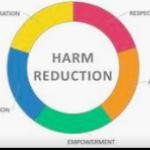#Reprinted with permission. Dr. Singer's original article can be found here.
harm reduction
Reprinted with permission of the author and the Cato Institute. Dr.
The CDC is one of the finest public health institutions on the planet. Because they fearlessly march into "hot zones" to battle deadly infectious diseases, we microbiologists think of the good folks at the CDC as real-life superheroes.
I remember the days when a restaurant's seating host would ask, "Smoking or non-smoking?" As if it mattered. The two sections were usually separated by a flimsy little divider that didn't even stretch to the ceiling.
Smoking can be thought of as a pediatric disease.
The “opioid epidemic” consistently addressed in the news, by politicians and throughout social media conflates many aspects of the issue, often speaking interchangeably about prescription medications and illicit drugs.
It’s been a while since I wrote about foreign bodies in the body; but, given a recent published case report describes a 20-cm eggplant transanally positioned and stuc
Not that long ago, if a company had invented a far safer way to deliver nicotine to addicted smokers, politicians would be celebrating. Smoking is one of the leading preventable causes of disease and death in the world.
There is a stunning lack of practicality in modern-day America.
There's no doubt about it. E-cigarettes have the potential to save millions of lives.












